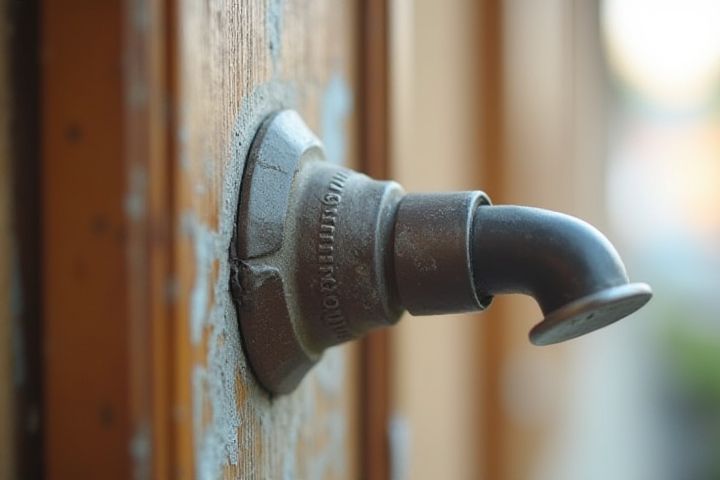
House maintenance costs can vary significantly depending on several factors, including the size, age, and location of your home. On average, homeowners should budget about 1% to 3% of their home's value annually for maintenance expenses. For instance, if your house is valued at $300,000, expect to allocate between $3,000 to $9,000 per year for upkeep. Routine tasks such as lawn care, roof repairs, and HVAC servicing contribute to these costs. Investing time in preventive maintenance can help reduce future expenses, ensuring your home remains in optimal condition.
How Much Is House Maintenance
Routine maintenance costs
Routine maintenance costs for a house typically range from 1% to 3% of the home's value annually. This budget covers essential tasks such as HVAC servicing, plumbing checks, and roof inspections, ensuring your property remains in optimal condition. For instance, if your home is valued at $300,000, you should anticipate spending between $3,000 and $9,000 each year on routine upkeep. Prioritizing these expenses not only preserves your home's value but also helps prevent costly emergency repairs in the long run.
Property size and age
House maintenance costs significantly depend on property size and age. Larger homes typically incur higher maintenance expenses due to increased square footage requiring more frequent repairs and upkeep. Older properties often demand specialized servicing, as aging systems and materials can lead to significant issues, potentially raising costs further. By understanding these factors, you can better budget for maintenance needs and prioritize essential repairs to ensure the longevity of your investment.
Geographic location impact
House maintenance costs significantly vary based on geographic location due to factors such as climate, labor rates, and the availability of materials. For instance, coastal areas often require higher maintenance due to saltwater corrosion, while regions experiencing extreme temperatures may need additional insulation and heating systems. Urban locations typically have elevated labor costs and permit fees, influencing overall expenses. Understanding the local real estate market and environmental conditions can help you budget effectively for maintenance in your specific area.
Seasonal upkeep expenses
House maintenance costs can fluctuate significantly depending on seasonal upkeep, often averaging between 1% to 4% of your home's value annually. In the spring, you might incur expenses for landscaping, gutter cleaning, and HVAC system checks, while summer might focus on exterior painting and pool maintenance. As fall arrives, budget for tasks like chimney cleaning and weatherproofing to prepare for winter storms, leading into winter preparations such as snow removal services and heating system inspections. Your overall maintenance strategy should consider these seasonal tasks to avoid larger repairs and ensure the longevity of your home.
Unexpected repair costs
House maintenance often incurs unexpected repair costs, which can vary significantly based on property age, location, and overall condition. Homeowners should anticipate allocating 1% to 4% of the property's value annually for maintenance, factoring in potential surprises such as plumbing issues or roof leaks. Building an emergency fund specifically for repairs can help mitigate financial stress when unexpected problems arise. You may want to regularly inspect systems such as HVAC and electrical to catch issues early and reduce future expenses.
Appliance and system lifespans
House maintenance significantly depends on the lifespan of appliances and systems, ensuring they function efficiently and safely. Major appliances, such as refrigerators and HVAC systems, typically last between 10 to 15 years, while water heaters may require replacement every 8 to 12 years. Regular maintenance schedules, which include cleaning and inspections, can extend these lifespans and prevent costly repairs. Understanding these timelines helps you budget effectively for replacements and allocate resources for routine upkeep in your home.
Homeowners insurance considerations
Homeowners insurance is a critical aspect of your house maintenance strategy, as it protects against potential damages and liabilities. Regular maintenance can help reduce insurance premiums by minimizing risks such as water damage, fire hazards, and pest infestations. Factors like roof condition, plumbing integrity, and electrical safety should be prioritized, as insurers often inspect these areas before policy approval. Investing in consistent upkeep not only safeguards your property but also ensures compliance with your insurance policy requirements, potentially preventing claim denials in case of damage.
DIY vs professional services
House maintenance often involves a blend of DIY efforts and professional services, depending on the complexity and urgency of the tasks. Many homeowners choose DIY for routine activities like painting, minor repairs, and landscaping, which can save money and provide a personal touch. However, for specialized tasks such as electrical work, plumbing, or extensive renovations, investing in professional services ensures safety and quality outcomes. Balancing DIY projects with expert help allows you to maintain your home efficiently while managing costs effectively.
Energy efficiency investments
House maintenance costs often heavily emphasize energy efficiency investments, as these upgrades can significantly reduce long-term expenses. Investing in energy-efficient appliances, insulation, and HVAC systems not only decreases utility bills but also enhances your home's overall value. Incorporating smart home technology, like programmable thermostats and energy monitoring systems, can optimize energy consumption, making your living space more comfortable and sustainable. By prioritizing these investments, you can create a more eco-friendly home environment while saving money over time.
Home improvement ROI
House maintenance plays a crucial role in maximizing your home improvement return on investment (ROI). Routine upkeep, such as roof inspections and plumbing checks, can prevent costly repairs and enhance the lifespan of your property. Investing in energy-efficient upgrades, like new windows or insulation, not only reduces utility costs but also attracts potential buyers by increasing property value. By prioritizing maintenance and strategic improvements, you can significantly boost the long-term financial performance of your home.
